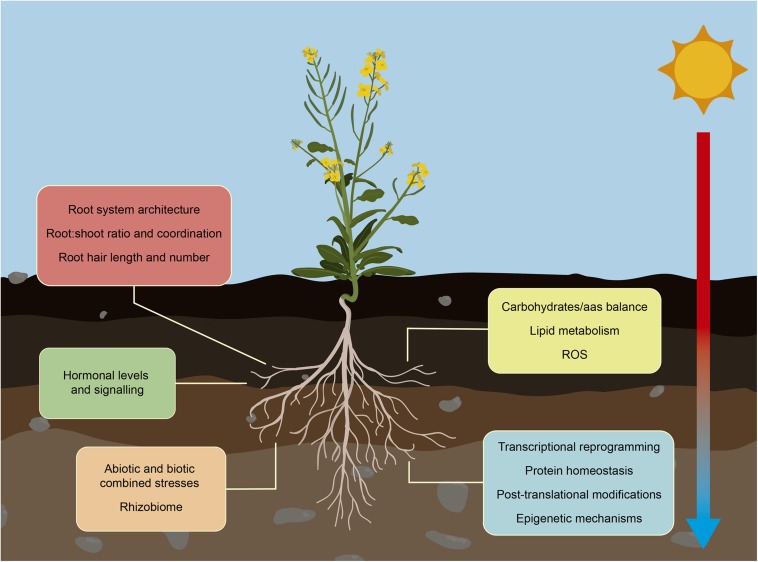FIGURE 2.
Root response to increased ambient temperature. Climate change is increasing the ambient temperature altering crops growth. Crops adapt root development and functionality to maintain water and nutrients availability in this stressing environmental situation. These changes in their RSA, include alterations in lateral and primary root growth and root hair elongation, and adjustment of their interchange with aboveground organs. Roots also suffer changes in their metabolism affecting mainly carbohydrate/amino acid balance, lipid metabolism and the activation of heat and oxidative pathways to prevent disruption of root growth. Temperature-mediated alteration of hormone levels trigger signal transduction pathways that prepare plants to overcome the stress situation. Other significant molecular changes that regulate root adaptation include global transcriptomic reprogramming, changes in protein profiles, and activation of epigenetic and chromatin-based mechanisms. In the field, increasing temperature is usually accompanied with other abiotic and biotic stresses such as drought, salinity, nutrient deficiency and pathogen infections. Roots are able to integrate and respond to all these different stress situations to promote their survival and maintain their growth.

